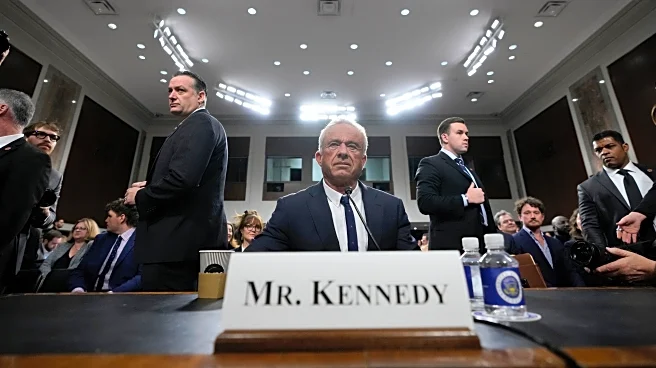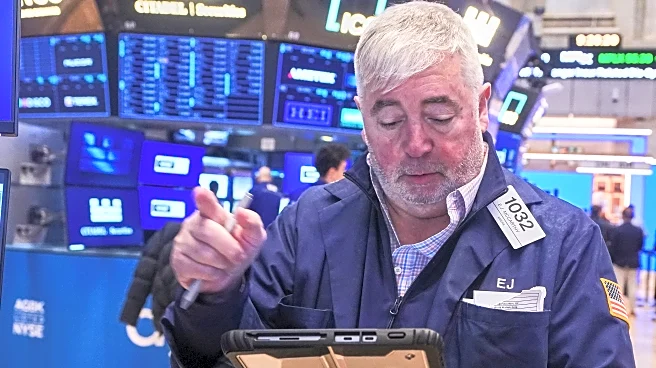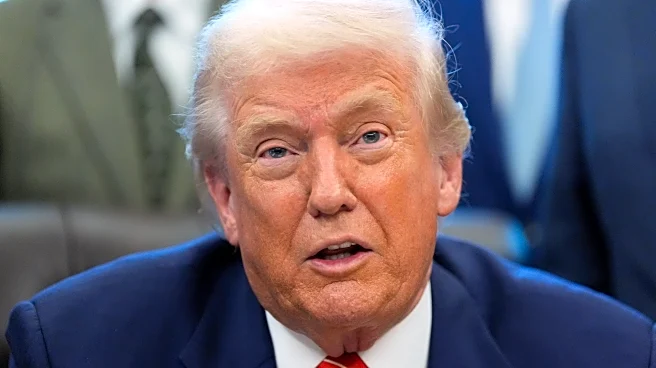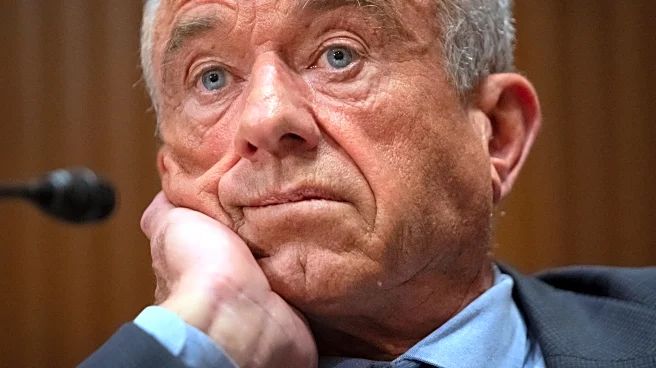What is the story about?
What's Happening?
President Trump's trade policies, characterized by increased tariffs, have not garnered international support, as other nations have largely refrained from retaliating or imposing similar barriers. Trump's approach aims to protect American manufacturers by reducing imports, but the global community has resisted following suit, avoiding a broader trade war. The World Trade Organization reported that fears of tit-for-tat retaliation have not materialized, as countries recognize the self-destructive nature of such policies. Despite Trump's claims of creating a new global trading order, the U.S. appears to be isolating itself from the system it once led.
Why It's Important?
The lack of international support for Trump's trade policies underscores the challenges of unilateral protectionism in a globalized economy. While intended to boost domestic manufacturing, these policies have not delivered the promised benefits, with factory jobs declining and investment in U.S. manufacturing slowing. The global rejection of Trump's approach highlights the importance of cooperative trade policies that foster economic growth and stability. The situation raises concerns about the U.S.'s ability to influence global trade dynamics and maintain its economic leadership.
Beyond the Headlines
The broader implications of Trump's trade policies include potential shifts in global economic alliances and the U.S.'s role in international trade. As other nations continue to pursue open trade policies, the U.S. risks losing its competitive edge and influence. The situation also raises ethical questions about the impact of protectionism on global economic equality and development. Long-term, the U.S. may need to reconsider its trade strategies to align with global trends and ensure sustainable economic growth.

















